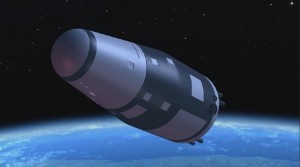Four Chinese volunteers – three men and one woman – started on Friday a 6-month experiment in a sealed space capsule, which will test technologies that will support China’s deep-space exploration projects.
They will live in a sealed capsule in south China’s Shenzhen City as part of an experiment which aims to shed light on how oxygen, water and food can be used and recycled under controlled conditions.
The project has been designed to test the “controlled ecological life support system,” which is inspired by technologies used on China’s Shenzhou spacecraft.
The 1,340-cubic-meter sealed capsule has a floor space of 370 square meters and is divided into eight compartments.
Inside the capsule, scientists have cultivated 25 kinds of plants, such as wheat, potatoes, soybeans, peanuts and lettuce, while strawberries and tomatoes are also on the list.
The plants are part of a larger ecological treatment system that will help in generating oxygen and water, reducing dependency on outside supplies.
Scientists will also observe how such an hermetic environment affects physiological changes, biological rhythms, sleep patterns and emotional wellbeing of the volunteers.
Many Chinese and overseas institutions are participating in the experiment, including the Shenzhen-based Space Institute of Southern China, the Chinese Academy of Sciences, Harbin Institute of Technology, Harvard University and the German Aerospace Center.
Ask me anything
Explore related questions





